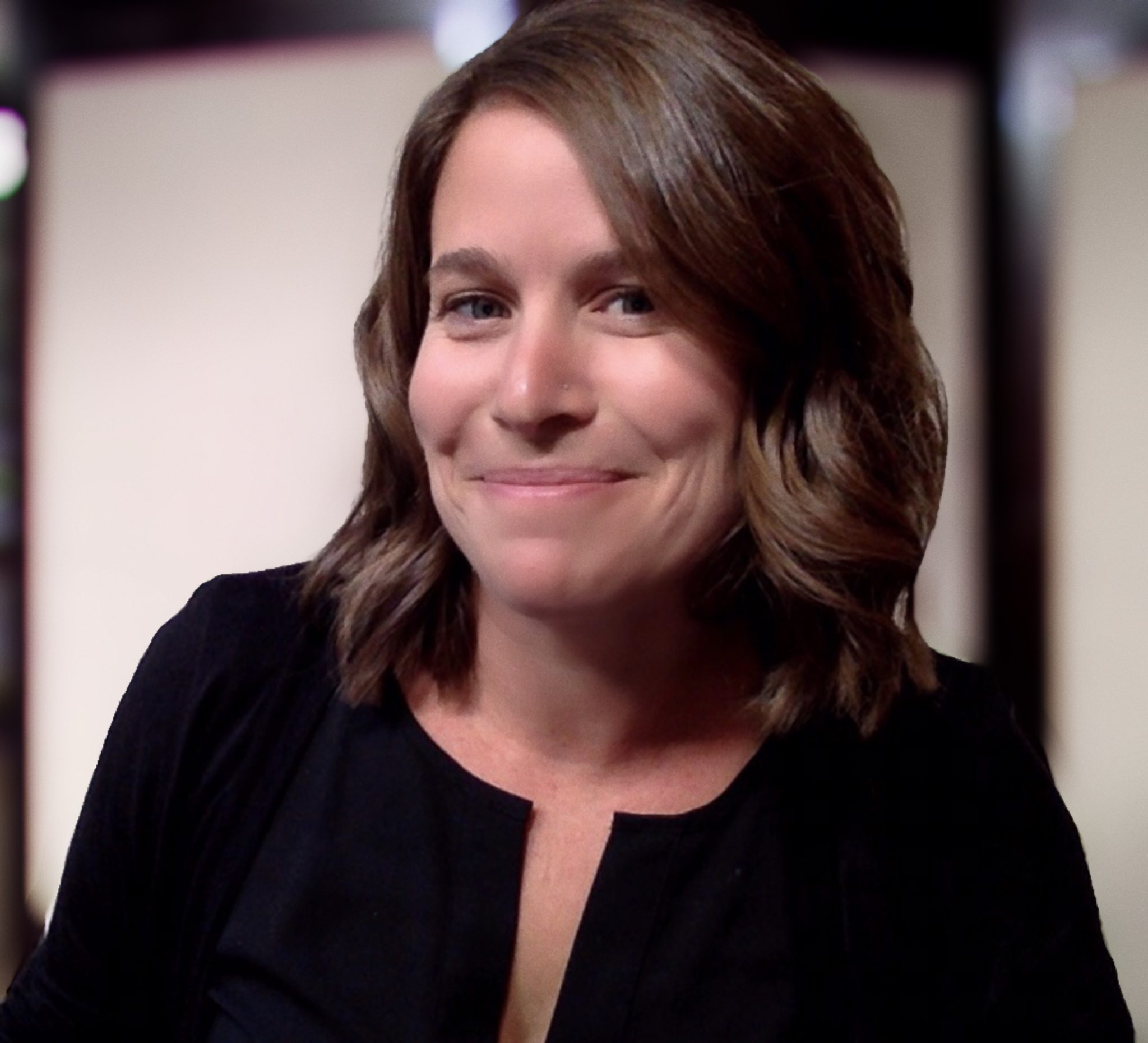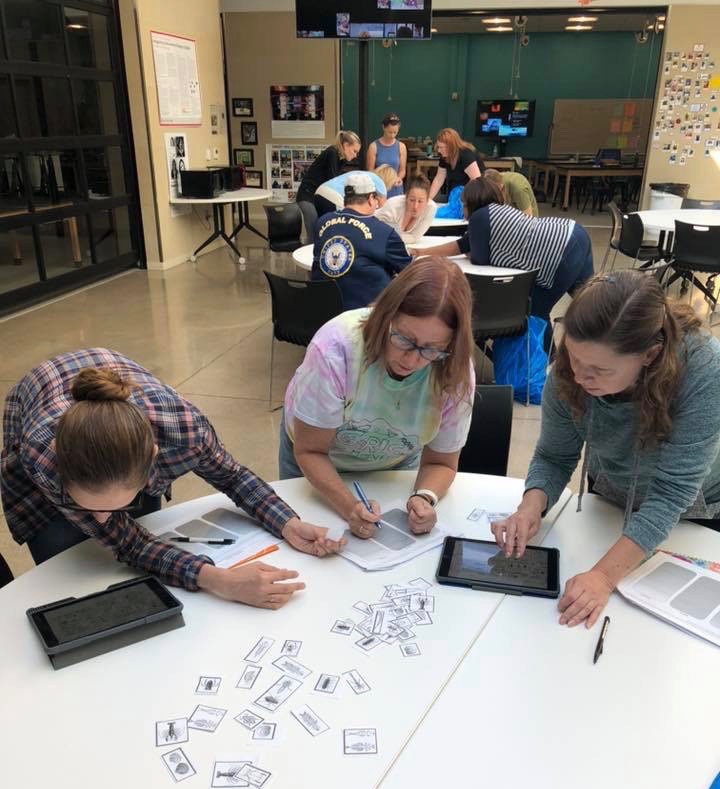One might think that an enterprise called the PAST Foundation would be focused on, well, the past. But that’s not the case with this Columbus-based non-profit education organization.
The PAST Foundation wants to transform the future of teaching and learning through its emphasis on STEM education, school design and workforce development. Through its programs, which include its Innovation Lab; professional development training for school administrators and teachers; and student activities, to name a few, the foundation works to change education “to better meet the needs of today’s students.”
It is even conducting online and on-site workshops tied to OSLN’s latest K-12 design challenge, the #STEMdrivesOhio Design Challenge, exploring Smart Mobility. To tell us more about the PAST Foundation and its work, we contacted Kat Deaner, director of school design for the foundation:
Q: Tell us about the PAST Foundation and its work in improving STEM education, school design and workforce development.

A: We are proud to be celebrating our 20th anniversary next year! The PAST Foundation began in 2000 by providing weeklong field experiences for high school students across the nation. Through our field schools, PAST recognized the power of hands-on, real-life-problem-solving STEM education and set out to amplify educational opportunities for all students.
Although deeply committed to STEM education, we recognize that good education and practice encompass more than just science, technology, engineering and math; rather, they apply to every discipline. Meeting today’s and tomorrow’s workforce challenges requires a systemic transformation and support from community, business and industry partners. Our goal is to be a catalyst for this transformation and facilitate conversations with all stakeholders.
Since 2000, PAST has grown to provide professional development for school administrators and educators, informal student programming, evaluative evidence-based research and strategic visioning sessions.
Q: PAST stands for “Partnering Anthropology with Science and Technology.” Why the emphasis on anthropology, and how does this emphasis play out in your programs?
A: We approach education through a cultural and systems-thinking lens. Looking across educational systems for similarities, we quickly recognize that all schools have common denominators, but no two schools are identical. Each school is seated in the context of the individual community’s unique culture.
Educational models based on a universal framework can often be successfully propagated, but not necessarily replicated because of each school and community’s unique attributes. PAST uses anthropology to create culturally relevant and timely transformations in each community’s program.
Q: What is transdisciplinary problem-based learning, and how does it go beyond traditional PBL?
A: Life is interconnected, and learning should be as well. PAST champions good teaching practices through the design cycle, a universal way that all humans go about solving problems. Integrating design thinking into our pre-K to post-secondary classrooms builds critical thinkers and problem-solvers.
A primary goal of our work is to create a process that takes any topic and reveals how interconnected all subjects are to one another. Transdisciplinary goes beyond traditional PBL by blurring the lines between content areas. We cannot understand science if we cannot read, nor can we ground math in real-world issues if we cannot problem-solve.
If we do not understand the social consequences of increased knowledge gained through science and technology, we might unintentionally negatively impact humanity and ecological systems. Bottom line, we strive to link learning to life.
Q: Tell us about the Innovation Lab: How is this research and design prototyping educational facility unique? What does it offer, and whom does it benefit?
A: In 2015, PAST launched the PAST Innovation Lab (PIL) in Columbus. PIL is a research and design prototyping educational facility. Although learning laboratories are not a new concept, and a number of these demonstration platforms exist across the nation, the majority – if not all – are located either in a secondary or post-secondary institution.
PIL is an independent R&D facility that partners with K-12 schools, post-secondary programs, community partners and business and industry to design and test education models that promote an integrated approach to learning. In short, PIL is an innovation hub connecting stakeholders to influence positive change for the workforce of tomorrow.
Q: Tell us about your professional development programs for educators.
A: PAST offers a wide range of professional learning opportunities for educators at various stages of STEM and problem-based learning implementation. Just as we differentiate instruction in the classroom, we understand professional learning should be tailored to meet the unique needs of individual educators. To that end, we provide professional learning through a combination of online courses, virtual meetings, one-day and multi-day onsite workshops, visioning sessions and immersive experiences.
Q: Your professional development courses include your P3 Applied courses. What do these entail, and who could benefit from them?
A: Our P3 Applied courses take theory to practice, and pivot off of specific content areas such as aviation, robotics and health sciences. We introduce participants to the PAST P3 framework, which reflects the hierarchy of critical thinking and problem-solving – Problems, Projects and Products. Through a hybrid approach of virtual and onsite workshops, we introduce educators to a stepped process to create rigorous and relevant lessons.
New and veteran STEM educators benefit from our P3 Applied courses, and we invite all educators to join and change the conversation.
Q: Recent P3 Applied courses, funded by DriveOhio and Battelle, have focused on smart mobility and problem-based learning, to help middle and high school teachers mentor students in OSLN’s #STEMdrivesOhio Design Challenge. Can you give us a taste of what is included in these courses, what impact they are meant to have on instruction and why PAST believes these methods to be effective?
A: The recent P3 Applied courses in Smart Mobility helped educators identify real-world problems and potential solutions in transportation and smart mobility around the state. Working with industry experts, educators gained an understanding of current projects the state is addressing, from autonomous and connected vehicles to infrastructure. Participants built learning units for students to solve transportation problems in their own community during the online and on-site course. Solving traffic congestion on roadways and during school pick-up, hours are just two examples of planned units.
Q: Will your organization be making more sessions available?
A: Yes! To support educators participating in the OSLN’s #STEMdrivesOhio Design Challenge, we are offering an online P3 Applied course, Oct. 21-Nov. 8, followed by an onsite workshop located in the Akron and Dayton areas in mid-November to test drive activities and meet local experts.
Visit the PAST Foundation website page on the design challenge for more information and to register.
PAST’s School Design team also regularly offers courses and fellowships in applied learning and problem-based learning. Our goal is to engage as many educators as possible to bring relevant, engaging learning opportunities to every student.
Q: Is there anything else you would like to share about PAST, its work, its educational offerings or its impact?
A: In February 2019, we launched the podcast series “Learning Unboxed,” which aims to talk about how we reimagine, rethink and redesign our global education system. These lively conversations are about teaching, learning and the future of work and are definitely worth checking out!